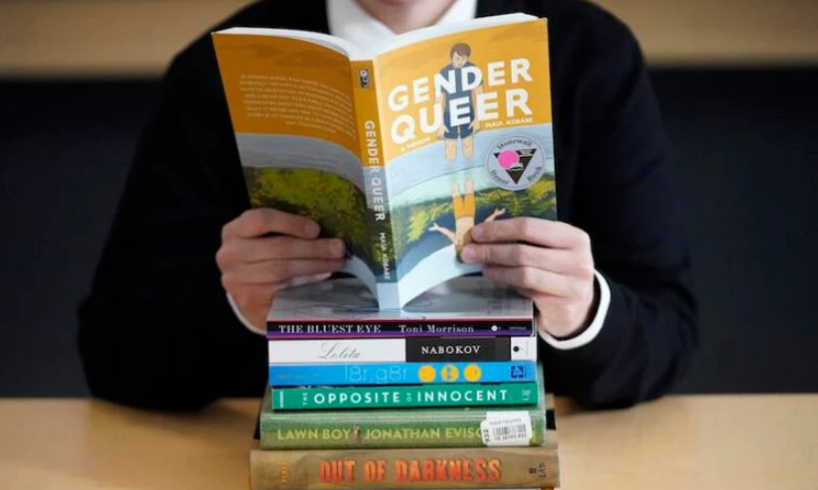
Wake County Public Libraries’ decision to remove a book from shelves has raised questions about constitutionality and legality.
Spectrum Local News first reported the library system removed “Gender Queer: A Memoir” from its catalog last week.
A reader filed a complaint about the book and turned it over to the Wake County Sheriff’s Office, claiming it violated state and federal law. LGBTQ and literature advocates said removing the book violates the U.S. Constitution and is unnecessary censorship.
“Our public libraries should be an information haven for all people in our community, not sites of censorship,” Equality NC, the LGBT Center of Raleigh and the American Civil Liberties Union of North Carolina said in a joint statement. “The coordinated effort throughout the country to denigrate books that center LGBTQIA+ issues and voices from libraries and schools is harmful and unconstitutional, flying in the face of the fundamental principles of the First Amendment.”
Written by Maia Kobabe to explain being nonbinary and asexual to relatives, “Gender Queer: A Memoir” is reportedly one of the most-banned books in the country. Parents, school officials and lawmakers have challenged it in at least 11 states. It includes details of Kobabe’s sexual experiences. Wake County Public Library officials said it was removed because it has illustrations that are pornographic, according to an internal email made public.
A Wake County library member initially sent an email to the library complaining about “Gender Queer” and another LGBTQIA+ book, “Lawn Boy.” Deputy Library Director Ann Burlingame told the reader, whose name was withheld in the email, to fill out a Request for Reconsideration form.
The reader said “Gender Queer” “had sexual scenarios spanning many pages with graphic illustrations” and should be “thrown out and kept in a secure area” for readers over 25 years old. The book already was in the adult section of the library. The complainant also said it lacked “literary value,” and the government should not use tax dollars for the book.
A group of parents made a similar request to the Wake County Public School System, but district officials have left the decision to individual schools. Lt. Gov. Mark Robinson also slammed the presence of the two books in libraries and schools.
In the internal email, Burlingame said the complainant cited federal law that makes it “illegal to distribute, transport, sell, ship, mail, produce with intent to distribute or sell, or engage in a business of selling or transferring obscene matter” and similar state law. Burlingame said she used her own discretion in deciding to remove the book.
“You know, defining something as pornographic is tricky and I follow the leadership of Justice Potter Stewart who said about pornography in Jacobellis v. Ohio(,) ‘I know it when I see it,'” Burlingame wrote in the email to Wake County Director of Community Services Frank Cope.
According to the U.S. Justice Department, unprotected obscenity is measured by the 1973 case Miller v. California. It must appeal to the “average person’s prurient interest in sex;” depict sexual conduct in a “patently offensive way;” and “taken as a whole, lack serious literary, artistic, political, or scientific value.”
Civil rights activists said the decision harms LGBTQIA+ residents and community members and stakeholders should have been involved in the decision-making process.
“Removing books and resources about and by people who have long been marginalized silences important voices, invalidates people’s lived experiences and demeans entire groups of people,” the groups said in a joint statement. “Wake County Public Libraries serve over a million residents, and this act of censorship is a refusal to serve specific community members.”
This article was originally posted on Wake County library removes book, sparking debate over censorship, obscenity